MARKET OVERVIEW
The global radiation dosimeters market by offering vital instruments that are intended to meter, monitor, and quantify radiation exposure in a broad spectrum of applications. Safety in industries that have the potential for exposure to radiation exists in medicine, nuclear power, industrial processing, and military uses. The market demand for Global Radiation Dosimeters is increasing steadily due to improved technology and enhanced protection of individuals and environments through strong radiation monitoring systems.
The application of global radiation dosimeters market will become increasingly significant as industries increasingly rely on radiological technologies. These devices can yield worthwhile information regarding the amount of radiation, and their requirement in occupational exposure measurement, for evaluating the environment, and for ensuring the required regulatory requirements is immense. They are no ordinary measuring devices but a sentinel, vested with the authority to mitigate the risk associated with radiation exposure. It presently encompasses a number of end-users including medical personnel, scientists, workers in nuclear facilities, and defense personnel.
For instance, the healthcare industry extensively utilizes dosimeters for personnel and patients in diagnostic imaging procedures as well as in cancer treatments. Similarly, this may apply to the industrial applications where these devices are utilized to detect radiation levels in power plants, waste sites, and when radiological equipment is manufactured. The versatility of application mirrors the versatility and adaptability of Global Radiation Dosimeters in use across industries. Technology is a driving force for change that defines the outlook of Global Radiation Dosimeters.
The conventional thermoluminescent dosimeters (TLDs) to electronic personal dosimeters (EPDs), new technologies and functionalities broaden their areas of application. Contemporary dosimeters now incorporate real-time monitoring, logging of data, and higher sensitivity to meet a developing demand for devices that are simple to operate and accurate. These advancements will also provide the foundation for integration of dosimeters into smart systems, which facilitate easy data transfer and analysis.
Geographically, the global radiation dosimeters market is expected to see increased activity in all regions. The developed world, with its strict safety regulations, will remain the demand driver, but emerging markets will also play their part as they augment their nuclear and healthcare facilities. As radiation safety concerns globally increase, demand for effective monitoring solutions will become even more acute, creating opportunities in unpenetrated markets. The market of Global Radiation Dosimeters will extend beyond mere, conventional uses, particularly as the new industries that need radiation management solutions are realized. For example, space exploration, conservation of the environment, and cutting-edge manufacturing would provide new scenarios of use. For instance, radiation monitoring would be key to protecting astronauts in space exploration and in tracking extraterrestrial environments. In conclusion, global dosimeters of radiation are indispensable for controlling and guaranteeing safety across various industries with their management.
Their industry, marked by high technology application and wide usage, will thus be a vast arena to tap. This way, the demands of the modern industry, which will keep pace with growth, will further enhance the expanded capabilities and usage of the devices by making them better optimized and more efficient.
Global radiation dosimeters market is estimated to reach $4,696.5 million by 2032; growing at a CAGR of 6.2% from 2025 to 2032.
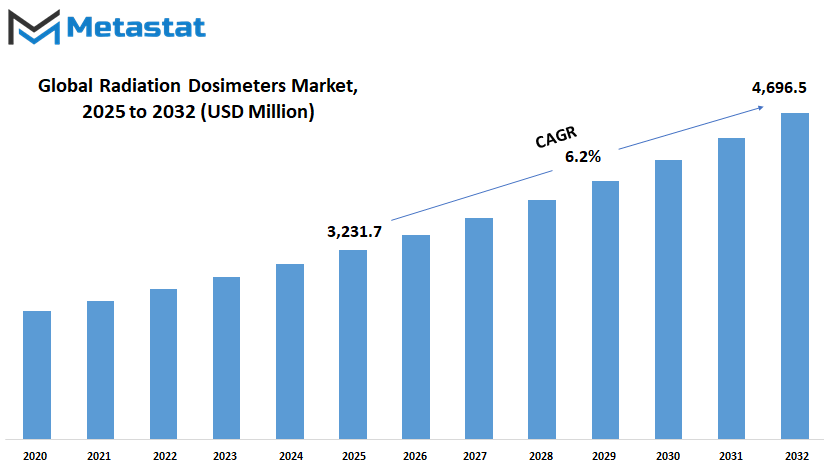
GROWTH FACTORS
The global radiation dosimeters market is anticipated to increase with the impact of different factors. Increased reliance on radiation in medical imaging and cancer therapy has generated a massive demand for effective dosimetry methods. These instruments help ensure the exposure to radiation is tracked correctly, thereby safeguarding medical professionals and patients alike. With the medical area becoming larger, the application of technology based on radiation will also rise, along with the requirement of proper dosimetry devices to be employed so that safety can be ensured while complying with regulations laid down by regulatory bodies. Safety standards implemented by regulatory bodies also constitute one of the major factors that will make radiation dosimeters necessary.
These laws call for stringent workplace radiation monitoring, including hospitals, research facilities, and manufacturing industries. The mounting demand from employers to build secure workplaces has put the call for better dosimetry solutions under pressure. Such trends reflect health and safety obligations worldwide and thereby fuel market growth as it emerges as one compliance priority. However, the market is not without hindrances. The high upfront prices and ongoing maintenance prices of sophisticated dosimeters are entry thresholds for organizations with meager budgets. Apart from that, in certain parts of the world, individuals do not have knowledge about the importance of radiation protection and dosimetry.
That is a major obstacle in embracing such devices, particularly in parts of the world with poor enforcement and inadequate resources. In spite of all these difficulties, technology development is establishing new opportunities that will transform the market. New technologies are developing dosimetry instruments that are more precise, less expensive, and smaller. This will simplify radiation monitoring and become more appealing to more people ranging from large medical centers to small clinics and enterprises. As the products change, their appeal will expand, leading to more adoption and widening the market base.
Looking ahead, the global radiation dosimeters market is set to develop robustly because these forces are converging. A convergence of rising awareness, improved technology, and elimination of economic barriers is going to determine how the market will unfold. With ongoing advances and improved safety and conformity, this industry will expand at a fast rate to deliver new solutions for addressing expanding requirements of an increasingly diverse radiation-based technological environment.
MARKET SEGMENTATION
By Type
Awareness regarding the radiation safety is to be promoted in various industries so that the global radiation dosimeters market grows more. These devices become more and more critical in the exposure measurement and monitoring of radioactivity and turn out to become a crucial component in those industries where radiation arises as a threat. Health, environmental monitoring, and even personal protection are dependent on this technology so that professionals or common individuals stay safe. The market can be split into three particular kinds: Personal Dosimeters, Environmental Dosimeters, and Medical Dosimeters. In this manner, it is possible to understand that each machine is designed specifically to serve the purpose of a specific situation. Personal Dosimeters are usually adopted by individuals working in radiation-intensive environments, like nuclear power plants, research facilities, and specific medical centers.
These devices offer real-time tracking, enabling users to monitor their exposure levels and stay within safety limits. With advancing technology, these dosimeters are increasingly smaller and easier to use, so more people can use them. In the future, mobile app and other digital media integration may enable easy data transfer, facilitating quicker responses to possible dangers. Environmental Dosimeters are intended to track radiation levels at certain areas. They are also most crucial for testing zones around nuclear centers and accident sites of radioactive material.
As far as increasing awareness on matters of the environment's safety and also in seeking clean energy, these dosimeters will most certainly have a larger role to play for ensuring safe standards. Sensitive and robust sensors, which are being made these days, will improve their performance in providing accurate readings even under challenging conditions. Medical Dosimeters are used to meet a specialized need, providing the safe application of the levels of radiation used in diagnostic treatments or cancer therapy. As the healthcare industry continues to make widespread use of technologies based on radiation, increasing demand will be created for precise dosimetry.
These devices will safeguard both medical professionals and patients against exposure to dangerous levels of radiation. As medical imaging and therapeutic technologies advance, this market is likely to witness innovations that enhance the level of precision and usability. In the near term, the global radiation dosimeters market will experience tremendous transformation, due to emerging new technology development and mounting concern regarding radiation. With constant research and development, the device will be more efficient and simpler to operate with a broader range of applications. The shifting trends in the sector will illustrate the role of dosimeters as essential in encouraging safety and health in domains such as environmental protection and medical progress.
By Radiation Type
The global radiation dosimeters market is expected to expand greatly over the next few years, owing to technology advancements, constantly growing demand for safety devices in radiation-exposed industries, and the increasing application of radiation in all sectors, including healthcare, industrial applications, and research. Hence, this market plays a very crucial role in safeguarding people who are required to work in radiation-exposed environments, thereby acting as a vital component of security protocols globally.
This includes the radiation dosimeters, which monitor or measure exposure to various types of radiation. Depending on the kind of radiation, the market is divided into X-rays, gamma radiation, beta radiation, alpha radiation, neutron radiation, and combined radiation. With each of these having varying uses and application, demand for them is the sum of the various kinds of industries. For instance, X-ray dosimeters are used critically in medical diagnostics and treatment processes for the sake of health workers and patients against radiation. Gamma radiation dosimeters are also used extensively in nuclear facilities and research settings for the purpose of safeguarding workers from hazardous exposures.
Technology breakthroughs will be expected to have a commanding influence on the global radiation dosimeters market in the future. Both ease and precision will be provided by small-sized, handheld devices with real-time measurement. The capability to integrate electronic systems could also further enhance data analysis and reporting features, making it possible for monitoring of exposure levels to be improved even further. Optimization of such devices could also become more intelligent and automated, as individuals continue striving toward artificial intelligence. With expansion in industries and radiation having new uses, there will be greater demand for specialized beta, alpha, and neutron radiation dosimeters.
Beta radiation dosimeters will see more use in quality control procedures, while neutron radiation monitoring will see greater significance in space travel and sophisticated scientific research. Accordingly, sophisticated environments like nuclear reactors or physics lab high-energy will be dependent on mixed radiation dosimeters because they can manage various forms of radiation within the environment. In the coming times, further sensitization of the importance of radiation exposure's long-term hazards will yield to even more stringent regulations and therefore enhance the need for dosimeters. Firms in the world radiation dosimeters industry will be concerned with developing affordable and eco-friendly solutions as well as serving both developed and developing markets, which will also reflect upward growth, which in turn signifies high potential, which also goes hand in hand with innovation, flexibility, as well as the demand for a competitive advantage in an increasingly competitive environment.
By Application
The global radiation dosimeters market is predicted to boom, with applications spreading across various industries. These crucial devices quantitate and track the amount of radiation being introduced into a location, playing a crucial part in guaranteeing security and compliance where such is present. Their relevance is spread across a few major industries where they play a part in leaps in safety, innovation, and efficiency. Through classification by application, it is easy to determine that its impact is continuously rising and, for sure, will keep increasing over the next years. In the healthcare and medical application area, radiation dosimeters play an essential role in the protection of patients and health workers alike.
Use of radiation in diagnosis, like X-rays and CT scans, and treatment, like radiation therapy for cancer, points towards the necessity of accurate monitoring equipment. The requirement for advanced and trusted dosimeters will also increase as healthcare technology develops speedily, making procedures safer and according to very stringent safety standards. Not only do these devices safeguard health workers but also enable more accurate treatment and diagnosis. The industrial sector stands to have much to gain from the use of radiation dosimeters in various capacities, particularly in production and energy production. Nuclear plants depend greatly on these instruments for measuring and maintaining the levels of radiation in such a way as to ensure protection for workers and the environment.
All this expanded utilization of advanced manufacturing will increase the need for good radiation safety principles, with dosimeters having a significant role in safe operational processes. The ongoing quest for improved safety practice will create an increased need for trustworthy monitoring systems. The dosimeters have significant uses in checking levels of radiation within the ecosystem; particularly so in light of concern for environmental health as well as what really affects from radiation exposure.
There is greater focus on environmental conservation and public protection around the world, which will lead to increased use to apply more dosimeters, with advances in technology, becoming increasingly effective and affordable. The defense and security uses also depend significantly on radiation dosimeters to maintain security during the performance of nuclear and radiological activities. In this era where threats are continuously changing, these devices are very basic in ensuring safety while assisting to keep operational readiness intact.
As in research and academic environments, dosimeters of radiation are the pillars on which it is possible to carry out experiments with the ability of scientists to push the boundaries of scientific discovery within the limits of safe control. The global radiation dosimeters market will keep evolving as technology improves, ensuring the requirements and challenges of these industries continue to grow in various areas.
By End-User
Radiation Dosimeters may be significantly valuable to companies when handling many different market needs in many industries and health routines, ranging from nuclear power generation through to military defense research fields. Dosimeters measure worker, patient, or in the environment exposure. The future of the global radiation dosimeters market will see an extensive transformation in all the areas such as hospitals, nuclear power plants, laboratories, military organizations, and industrial applications as the technology is being developed day by day. The use of radiation dosimeters in hospitals and clinics is predominant because of the increasing incidence of diagnostic imaging procedures and cancer treatments, which demand highest radiation exposure.
As healthcare technologies increase, dosimeters will have an even greater significance in medical staff and patient safety. Hospitals will increasingly depend on these instruments to monitor radiation levels closely in procedures such as X-rays, CT scans, and radiation therapy. With advances in medical practice, the demand for accurate and dependable radiation measurement will continue to be crucial in keeping radiation doses within safe limits. The nuclear energy sector is also a huge market for the Global Radiation Dosimeters. Nuclear energy supplies a huge chunk of the world's energy, and it is necessary to ensure that workers are protected in nuclear power stations.
Radiation exposure in these environments is an actual hazard, and dosimeters will be a huge part of monitoring and managing this hazard. Advanced radiation detection technology in the future will make it possible for nuclear power plants to operate more effectively with better real-time tracking and lower exposure to harmful radiation. Research institutions and laboratories also rely on radiation dosimeters as protective measures for researchers' health and well-being when conducting experiments involving radioactive substances.
In the foreseeable future, as the intricacy of scientific research rises, particularly in the fields of nuclear physics, medicine, and environmental studies, radiation dosimeters will play a critical role in such studies. Therefore, dosimeters will safeguard good laboratory practices and upgrade the precision with which radiation research is conducted. Military and governmental bodies will continue to be among the most important users of dosimeters as worries about nuclear attacks and radiation exposure in applications related to defense increase.
Proper protection against radiation and monitoring will have much more work in all such applications of conflict and emergency treatment. Advanced generations of dosimeter equipment will give the military timely and accurate feedback concerning the risks of radiation exposure, promoting general safety under dangerous conditions. Radiation dosimeters will be a necessity for the industrial sectors since radiation is widely used as an agent in all kinds of manufacturing. Since newer technologies and developments, in any way possible, are made to all industries, the dosimeters themselves will also be designed to cater for such demands and become much sensitive and simpler to use. Hence, the need for safety and accuracy across the entire global radiation dosimeters will be high across all these industries of the sector.
The global radiation dosimeters market will remain on the rise and expanding into various industries. As technology improves, bringing forth increased demand, the value of these devices in protecting human health and the environment will continue to be central to it.
|
Report Coverage |
Details |
|
Forecast Period |
2025-2032 |
|
Market Size in 2025 |
$3,231.7 million |
|
Market Size by 2032 |
$4,696.5 Million |
|
Growth Rate from 2025 to 2032 |
6.2% |
|
Base Year |
2022 |
|
Regions Covered |
North America, Europe, Asia-Pacific Green, South America, Middle East & Africa |
REGIONAL ANALYSIS
The global radiation dosimeters market is expanding at a good pace due to technological growth and safety awareness in all kinds of industries. Dosimeters are applied for measuring ionizing radiation exposure and safety assurance in hospitals, nuclear power plants, and research laboratories. The market growth reflects a growing requirement to shield individuals and communities from possible risk related to radiation during increased scientific and industrial activity.
Geographically, the market is segmented into various regions and has a unique role to play in defining aggregate demand and supply conditions. North America remains a leading contributor, on account of the fact that this region has decent infrastructure, cutting-edge research, and strict safety standards. In this region, the United States is at the forefront of adoption followed by Canada and Mexico, which are growing healthcare and industrial markets. Europe also holds a substantial portion, with nations such as the UK, Germany, France, and Italy having a developed radiation monitoring network.
The remaining part of Europe is stable and shows ongoing growth and innovation while achieving high worldwide safety standards. Asia-Pacific is becoming a force to be reckoned with in the global radiation dosimeters market through rapid industrialization and advances in healthcare. India, China, Japan, and South Korea are experiencing heightened demand for these devices due to growing nuclear energy projects, research, and the creation of sophisticated medical treatments. Furthermore, the Rest of Asia-Pacific segment also offers positive potential owing to the rising perception of workplace safety and radiation risks.
In South America, Brazil and Argentina are at the forefront of the adoption curve for radiation dosimetry technologies, with government support and investments in healthcare infrastructure. The balance of South America is slowly catching up, with a steady growth in demand for radiation monitoring solutions. The Middle East & Africa is witnessing significant growth, with GCC Countries, Egypt, and South Africa leading the way. These areas are aiming to enhance their nuclear power and health infrastructure, thereby enhancing the need for a radiation dosimeter. In the future, the market is poised to take advantage of additional innovations like the availability of increasingly precise and easier-to-use devices. As dependence on technologies related to radiation becomes stronger, safety becomes increasingly powerful. This trend, thus, promises to usher in a rosy future for the global radiation dosimeters market, which would offer prospects for expansion and consolidation across geographic regions.
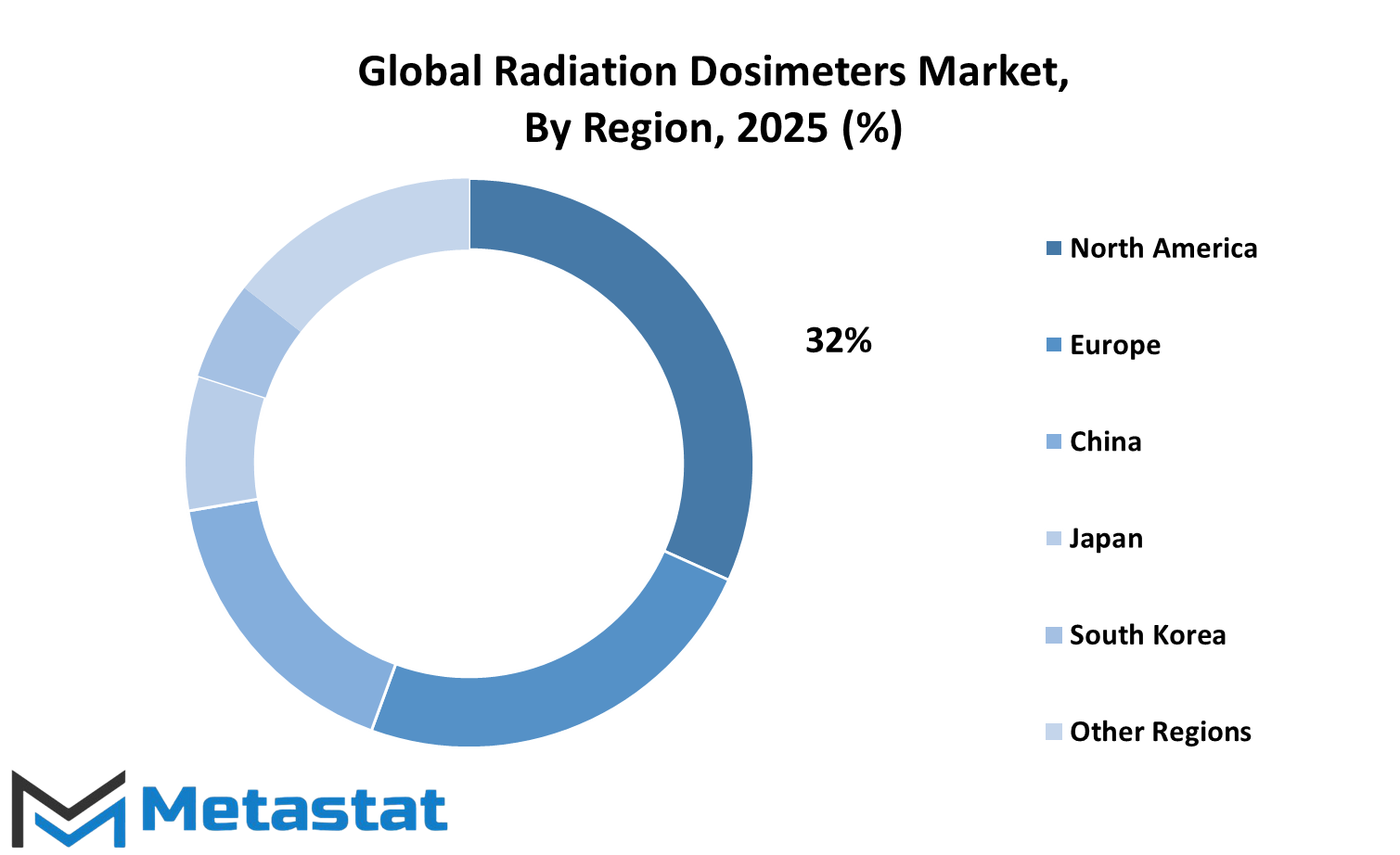
COMPETITIVE PLAYERS
The global radiation dosimeters market is likely to witness a significant increase in the coming years as industries are becoming more concerned with the safety of radiation exposure, and strict regulations within industries such as healthcare, nuclear energy, and defense are being implemented. Devices used for monitoring and measuring radiation exposure are very essential in ensuring personal and environmental safety. As industries grow and embrace new technologies, so will the demand for dosimeters, focusing on innovative and precise tools.
The key players in the market, such as Thermo Fisher Scientific, Landauer, Inc., and Mirion Technologies, Inc., have played a significant role in advancing dosimetry solutions. These companies focus on developing highly sensitive and user-friendly devices capable of providing accurate readings in diverse conditions. For example, healthcare professionals rely on these tools during diagnostic imaging and radiation therapy to protect staff and patients. Similarly, nuclear power plants and research facilities require robust dosimetry systems to ensure compliance with safety standards.
Emerging technologies are likely to mold the future of the market. Innovations in wearable dosimeters, wireless communication capabilities, and integration with data analytics platforms are expected to improve usability and efficiency. For instance, wireless dosimeters connected to centralized monitoring systems can send real-time alerts to ensure prompt response to hazardous situations. This evolution is an indication of increasing proactive safety measures and the necessity for reliable radiation monitoring systems in all sectors.
It would further lead to an intense market competition because the newcomers have a tendency to make technologically advanced products more economical. IBA Dosimetry, Polimaster, and Radiation Detection Company (RDC) companies are heavily investing in their research and development programs so that they can have high-quality products in their stores. This trend itself demonstrates the growing importance of dosimetry of radiation to all safety measures worldwide.
Regions such as Asia-Pacific and Latin America are also expected to register significant growth, with a growing industrial base and increasing health infrastructure. Governments in those regions are likely to become more stringent with radiation safety regulations, which will drive further market expansion. Companies such as RADOS Technology, Nuvia, and TechnoAP are focusing on these emerging markets with strategic local partnerships to strengthen their market presence.
In conclusion, the global radiation dosimeters market will continue to evolve due to technological advancements, regulatory needs, and growing awareness about radiation safety. Major players are spearheading innovation, and new regions are embracing these technologies, which are bound to sustain the market. Therefore, it is an important component of global safety standards.
Radiation Dosimeters Market Key Segments:
By Type
- Personal Dosimeters
- Environmental Dosimeters
- Medical Dosimeters
By Radiation Type
- X-rays
- Gamma Radiation
- Beta Radiation
- Alpha Radiation
- Neutron Radiation
- Mixed Radiation
By Application
- Healthcare and Medical Applications
- Industrial Applications
- Environmental Monitoring
- Defense and Security
- Research and Academia
By End-User
- Hospitals and Clinics
- Nuclear Power Plants
- Laboratories and Research Institutes
- Radiation Protection Services
- Military and Government Institutions
- Industrial Users
Key Global Radiation Dosimeters Industry Players
- Thermo Fisher Scientific
- Landauer, Inc.
- Mirion Technologies, Inc.
- IBA Dosimetry
- Polimaster
- Radiation Detection Company (RDC)
- RADOS Technology
- Seiko Instruments Inc.
- Ludlum Measurements, Inc.
- Tracerco (A Johnson Matthey Company)
- Canberra Industries
- ECOTEST
- LND, Inc.
- TechnoAP
- Nuvia
WHAT REPORT PROVIDES
- Full in-depth analysis of the parent Industry
- Important changes in market and its dynamics
- Segmentation details of the market
- Former, on-going, and projected market analysis in terms of volume and value
- Assessment of niche industry developments
- Market share analysis
- Key strategies of major players
- Emerging segments and regional growth potential



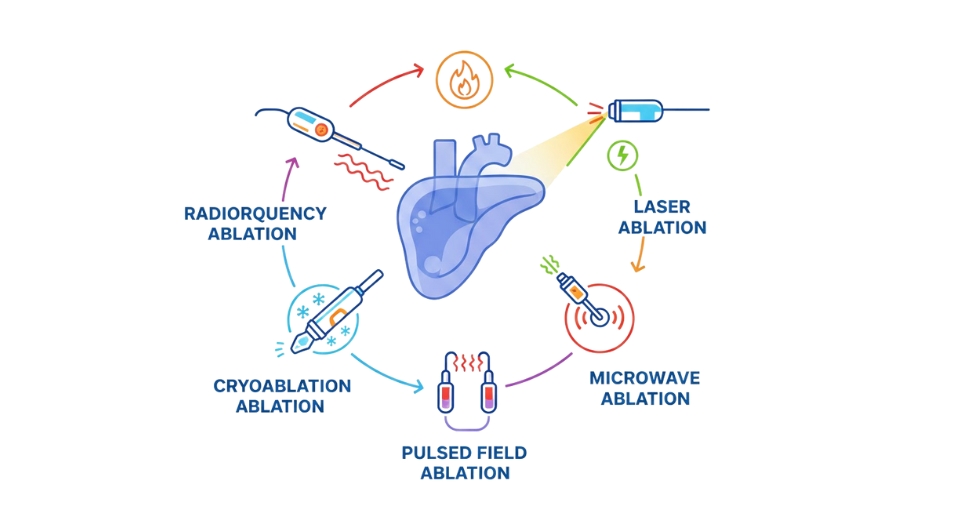

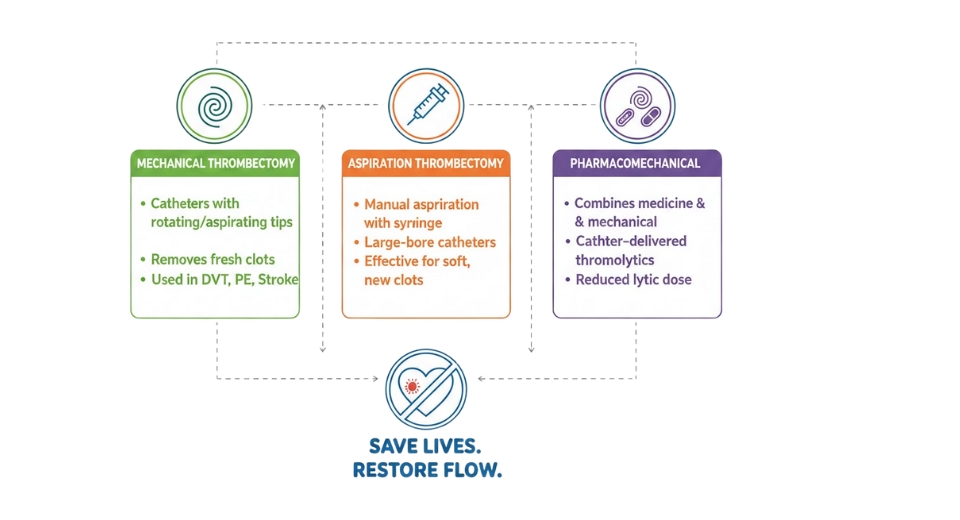
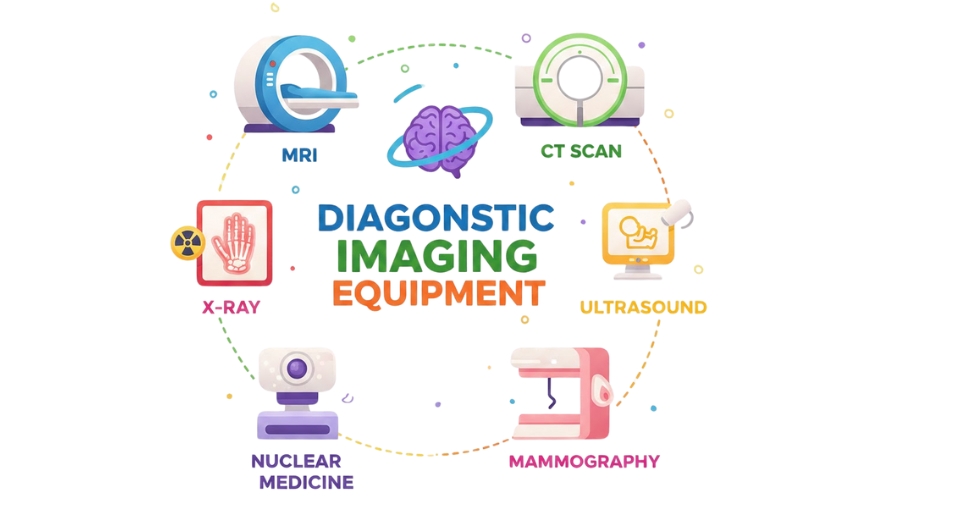

 US: +1 3023308252
US: +1 3023308252






